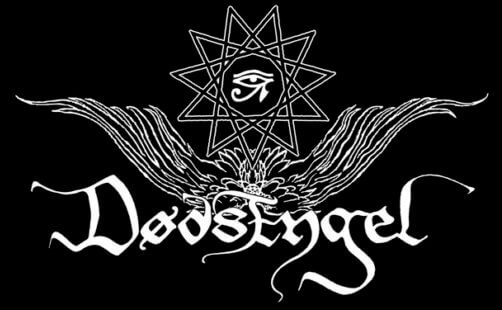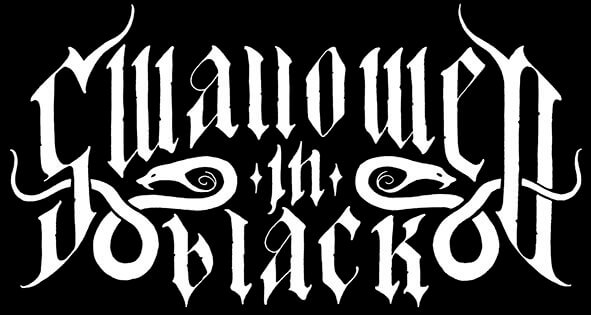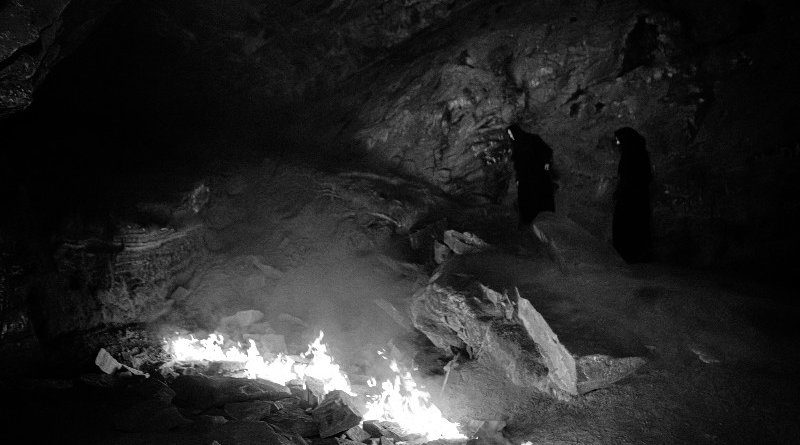“CHOOSING BABYLON OVER JERUSALEM IS A METAPHOR FOR CHOOSING THE CREATED WORLD OVER THE TRANSCENDENT HEAVEN OF THE CREATOR” – MALACH ADONAI (DØDSENGEL)
For a score of years less four, inimitable occult oddity Dødsengel has harvested an uncannily nourishing bounty of obscure, illuminating Black Metal mastery. Soaring to fresh new heights with its vintage alchemy of literary ingenuity and musical prowess, the dynamic duo’s most recent full-length conjuration, ‘Bab Al On’, represents a remarkable addition to an already radiant, elevated body of work that is without either measure or peer. Composer-in-chief and Thelemic adept Malach Adonai graciously contemplates the divine art of creation; expressions of being; rethinking life and death; and fulfilling one’s destiny and nature.
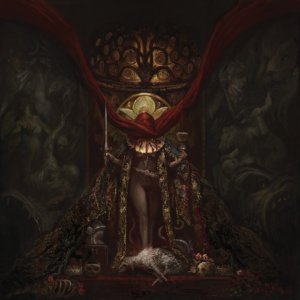 Shrouded in imagery and mystery, the music and lyrics that comprise Dødsengel’s monumental fifth full-length creation combine splendidly to form a rich tapestry of inimitable occult Black Metal majesty. What is the overarching theme, concept, or message that ties this complex work of art together? Could ‘Bab Al On’ perhaps be interpreted as an extensive exploration of the genesis and existential essence / terror of man? Are you contemplating the age-old mystery of who we are and where we come from?
Shrouded in imagery and mystery, the music and lyrics that comprise Dødsengel’s monumental fifth full-length creation combine splendidly to form a rich tapestry of inimitable occult Black Metal majesty. What is the overarching theme, concept, or message that ties this complex work of art together? Could ‘Bab Al On’ perhaps be interpreted as an extensive exploration of the genesis and existential essence / terror of man? Are you contemplating the age-old mystery of who we are and where we come from?
“I wrote the lyrics for ‘Bab Al On’ in a time where I was dealing with death, illness and loss in my personal life. Being a Thelemite, I felt that my reflections and my work tended to gravitate towards the Thelemic goddess Babalon. In my chosen tradition, she represents many things, but has a prime role as the Gate of incarnation. Birth, life, death… I am simplifying of course. The point is that I found that work particularly rewarding when dealing with death and serious illness. The lyrics and concept of the album sprang out of that personal need to rethink death and existence in light of this tradition. Who we are, as existing human beings, is a natural part of contemplating disease and death. Look to the myth of the Gautama Buddha for instance, who started on his path when shocked out of his comfort by ageing, illness and death.”
One of the consequences of intense pain, loss and grief is that it often gives rise to a heightened sense of awareness, instilling in the sufferer a wisdom that might not otherwise have been attained. From this terrible source can spring the most profound and precious art. However, from the perspective of the creator, who has quite literally suffered for one’s art, considering the traumatic circumstances of its conception, is ‘Bab Al On’ a bittersweet manifestation – the beloved child born of an excruciating union?
“I have pondered that subject quite a bit. Yes, it is true that suffering can act as a catalyst. In one sense, the capacity for empathy is governed by your ability to simulate yourself in different circumstances. That ability is dependent on your intelligence, in the sense of the processing power of the simulator, but also on your breadth of experience. People who have seldom suffered have more difficulty empathising with those who have.
“But on the other hand I am quite wary of turning suffering into a goal for its own sake, like we see in many Christian or ascetic traditions, where pleasures are to be shunned as spiritual poisons, and people are told to pursue or endure the most terrible suffering in the hope that it will ennoble their souls.
“‘Bab Al On’ has been a healing process for me. A recontextualisation of the universe in light of my experiences and the cosmology of my chosen tradition. While the experiences might have been laced with abject suffering, I see the totality as more sweet than bitter.”
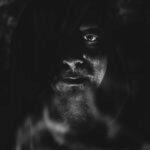 What does it mean to choose Babylon over Jerusalem as revealed in the closing entreaty ‘Abomination Gate’? Specifically regarding the Harlot of Revelations, around whom the concept of the LP is bound: who or what does the Whore of Babylon represent and why is she relevant in the modern (apocalyptic) world? As the Thelemic goddess of pleasure, does she promote the same carnal indulgences and temptations as the snake in Eden? Is she a mythical figurehead or metaphor for life / creation?
What does it mean to choose Babylon over Jerusalem as revealed in the closing entreaty ‘Abomination Gate’? Specifically regarding the Harlot of Revelations, around whom the concept of the LP is bound: who or what does the Whore of Babylon represent and why is she relevant in the modern (apocalyptic) world? As the Thelemic goddess of pleasure, does she promote the same carnal indulgences and temptations as the snake in Eden? Is she a mythical figurehead or metaphor for life / creation?
“Babalon is a form of Nuit. Nuit is the goddess representing the universe. In her form as Babalon the Great, she is the portal of incarnation. From which all spring, and to whom all shall return. Mother and Lover to all, which we embrace passionately in this carnal dance that is existence.
“Choosing Babylon over Jerusalem is a metaphor for choosing the created world over the transcendent heaven of the creator. The gnostics, many buddhists, etc., tended to see incarnation and life as a great tragedy, a loss of the perfection of being a formless soul, a part of the divine totality. We reverse this outlook. For us, transcendence is saved by the possibility of incarnation – to partake in the manifested universe is to fulfil our essence and nature. The idea of ‘lust’ as the divine lust to manifest and go forth, as the soul striding enthusiastically out to unite with the universe in its highest and lowest forms. To us, this is a divine glory. Not a tragedy that must be undone.”
As the title intimates, ‘In the Beginning’ traverses the aeons to visit creation itself. Are we a cosmic accident or was there some divine hand guiding the arrival of mankind? Is there any greater plan or purpose behind these primitive apes or are we merely a random, accidental consequence of the heaving, churning and indifferent cosmos?
“While we can, of course, never truly know the final answer to such a question, we can still reflect on how such questions impact our lives and souls. I find that we place too much emphasis on intentionality. Most of our actions, thoughts and emotions seem to be unintentional – they just show up or we just enact them, rather than implementing them consciously after a laborious process of conscious reflection. I do not think that tendency lessens them in any sense. Authenticity is often unconscious. We are still expressing our natures.
“I think the universe similarly expresses its nature through coming into being. Not necessarily as a part of a conscious plan or intentionality, but according to its essence. We are expressions of that nature, like everything else that participates in the cosmos.”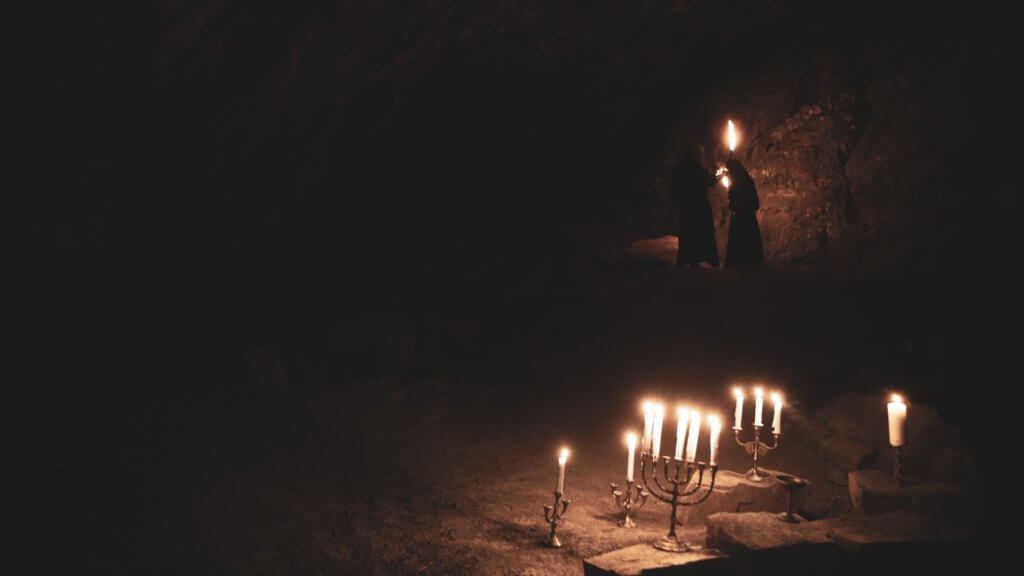 As unique points of attention within an infinite universe, should we each strive to somehow bypass the conscious mind / conscience altogether and let the cosmos – to which we are intrinsically entwined – guide us? Is understanding our inextricable connection with the universe and acting in alignment with nature key to breaking the shackles of repressive morals and unlocking True Will?
As unique points of attention within an infinite universe, should we each strive to somehow bypass the conscious mind / conscience altogether and let the cosmos – to which we are intrinsically entwined – guide us? Is understanding our inextricable connection with the universe and acting in alignment with nature key to breaking the shackles of repressive morals and unlocking True Will?
“We often discuss two formulae or pathways. LVX is the path to become what you are. NOX is the path to become what you are not. The adept walks both paths. Traditionally you are supposed to become Asar-Un-Nefer, Thyself Made Perfect, before aspiring towards the union with the True Will and the transcendence that follows beyond that. In that sense we should be what we are AND transcend. Not either or, but both.”
To what extent is Dødsengel an artistic appendage of your deep-rooted Thelemic convictions and practices? Is the music a sonic celebration of the creators’ faith, spirituality and life code? Could Dødsengel exist without Thelema or are the two inseparable?
“Dødsengel predated Thelema for us. We made ‘Visionary’ before encountering Thelema and the O.T.O. As such you could say that Dødsengel has been a way to express an earnest and personal grappling with existential and spiritual concepts, and that path has developed throughout the years. Black metal is a beautiful genre for that kind of work. The best albums still resonate deeply, and have a sense of rawness and reverence in their music. It mixes ecstatic force and transcendent melodies, and I think the conventional ‘mask’ of artist names and genre expectations allows people to experiment and play with themes they otherwise would stay away from for fear of ridicule, failure or social expectations. The inauthentic (the mask/persona) allows for authentic expressions, in a sense.”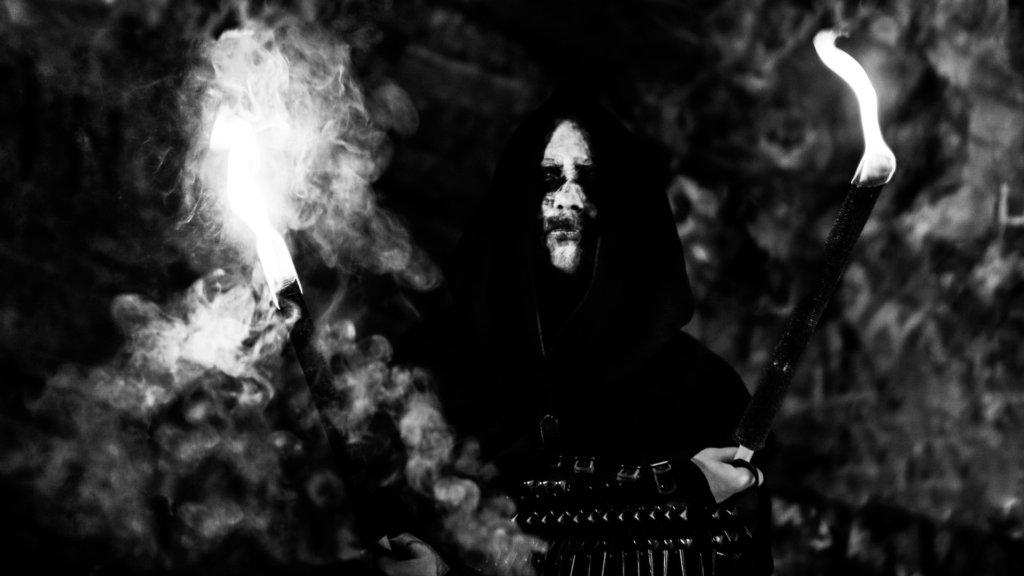
From synonyms, sigils and cloaks to rituals, corpse paint, endless controversies and an unapologetic affiliation with the adversarial, Black Metal has always had an alluring sense of mystique, obscurity and danger. Often the visual presentation (of artists and releases) speaks as loudly as the music itself. While the music should obviously be paramount, is Black Metal a mindset or movement that transcends being a mere musical genre?
“I think Black Metal can evoke or touch upon currents that very few musical genres can match. At its best it can be harrowing, ecstatic and truly inspiring. But is that a part of a movement or mindset? I am sceptical. The artist might be a complete lunatic and dunce like Varg, but still produce fantastic works of art. Or might be a truly inspired, complicated individual which ends up making terrible music. I simply suspect the two are disconnected, making a mindset or movement impossible.”
In keeping with the precedent set by ‘Visionary’ in 2009, Dødsengel albums by their very nature tend to be sprawling, epic arrangements. Your third album ‘Imperator’, for example, is an immense magnum opus comprising two-and-a-half hours of stellar transcendental Black Metal ritual, while ‘Bab Al On’ (at 72 minutes) continues the time-honoured trend, but once more never compromises on quality. At one point you released two full-lengths, a pair of split LPs, three mini-albums and an EP within a three-year period. How do you achieve such rich spurts of prolificacy? Do floods of inspiration wash over you when you enter creative mode, or do you have to work at it and exercise patience sometimes?
“Thank you for your kind words. We have our ups and downs. Sometimes the creativity just flows effortlessly, sometimes the opposite is the case. We have the luxury of time though, so we usually go about our lives, with our mundane tasks and practices, and in time, the creative spark will be back. Like spring following winter.
“I believe these dry spells or down periods are essential. Human beings do most of our thinking and developing unconsciously, while coming to terms with real life experience. With enough time and experience you will have more things that you need to express. When that is done, it is time to go back out into the world and accumulate more experience.
“My favourite word is enthusiasm, from enthousiasmos. Literally being ‘filled by the divine’, achieving a state of ecstasy, ek-stasis, not yourself. Cultivating enthusiasm in that philosophical, spiritual sense is a virtue which I believe can strongly influence the creative process.”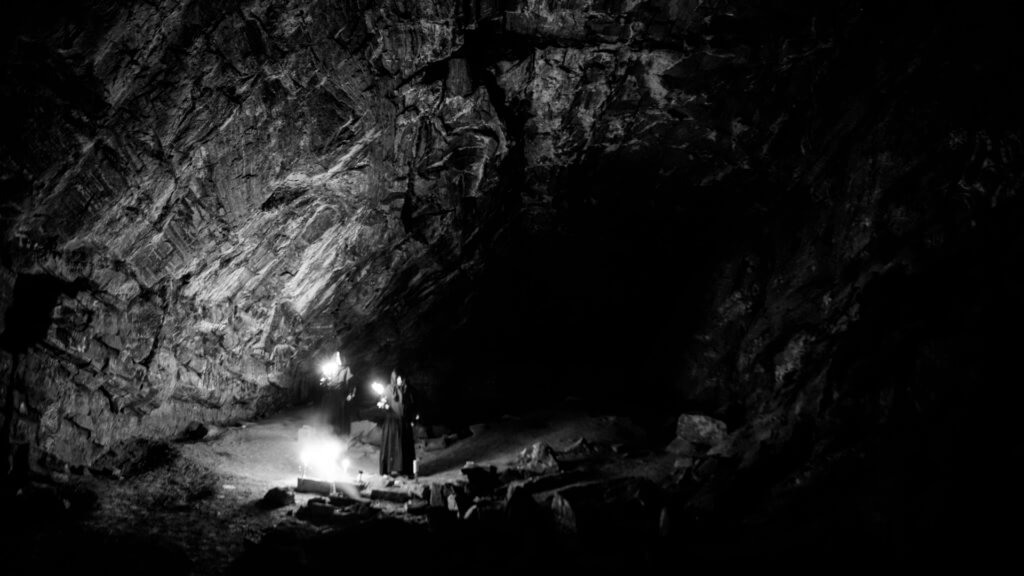 Complementing bewitching, entrancing, and consummate musicianship, the chilling, possessed and at times nigh-on-hysterical vocal delivery on ‘Bab Al On’ serves as an ideal conduit for the magnificent literary component. One of the many potent, profound and re-readable lines comes from ‘Bursting as Boils on the Backs of Slaves’: ‘We are the gloriously abominable sons and daughters of slaves and tyrants, Of stars and angels and beasts and nothingnesses, Our coming into being requires neither grace nor pardon.’ A clichéd question, perhaps, but how challenging / vital is it to merge message and music together so seamlessly and effectively? It feels like this is something that might come fairly naturally to you…
Complementing bewitching, entrancing, and consummate musicianship, the chilling, possessed and at times nigh-on-hysterical vocal delivery on ‘Bab Al On’ serves as an ideal conduit for the magnificent literary component. One of the many potent, profound and re-readable lines comes from ‘Bursting as Boils on the Backs of Slaves’: ‘We are the gloriously abominable sons and daughters of slaves and tyrants, Of stars and angels and beasts and nothingnesses, Our coming into being requires neither grace nor pardon.’ A clichéd question, perhaps, but how challenging / vital is it to merge message and music together so seamlessly and effectively? It feels like this is something that might come fairly naturally to you…
“Kark’s vocal deliveries are always wonderful. It is a true joy and a privilege to have him read and interpret my lyrics and give his spin to things. I often think that what he ended up delivering did the lyrics more justice than what I had in my head.
“I think many bands tend to have one composer, and many session members. So you end up with a single, cohesive plan. Being able to jam things out and ‘see what feels right’ for that specific song, track, lyric or riff gives another spin on things. We’ve always been a duo. The music, lyrics, etc. has been something which happened spontaneously due to us being very different people, and shaped itself oddly and often unexpectedly because of that. That’s the wonderful part of making music, to have ideas, but see something unexpected take form in front of you in spite of your plans and expectations.”
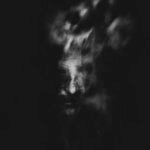 The lyrics of ‘The Lamb Speaks’ are borrowed from Aleister Crowley’s The Vision And The Voice (the Cry of the 20th Aethyr). Presumably the deceitful lamb referenced here is the lamb of god? Is organised (Abrahamic) religion an abhorrence, an inversion, a foul twisted corruption that preys like a vampire on the bodies and souls of the indoctrinated?
The lyrics of ‘The Lamb Speaks’ are borrowed from Aleister Crowley’s The Vision And The Voice (the Cry of the 20th Aethyr). Presumably the deceitful lamb referenced here is the lamb of god? Is organised (Abrahamic) religion an abhorrence, an inversion, a foul twisted corruption that preys like a vampire on the bodies and souls of the indoctrinated?
“Yes and no. This is a matter of interpretation, of course, but I’ll share one of my theories. The Lamb annihilates those who aspire towards spiritual fulfilment. In the negative sense, you have the slave religions and other mindsets that consider life a disaster and the ultimate spiritual experience some kind of cessation of life. That can be the ideal of a gnostic escape from reality, an ascent to another world, or anything really. The point is to escape the universe, and cease to be. Many of these spiritual practices are self–harming in the sense that they want you to have a non-self based ethics, cosmology, and use meditation and other practices to trivialise your personal consciousness or individual nature. There are points to that outlook, of course; it wouldn’t be convincing or tempting if it didn’t have some truth to it. In this sense, the Lamb takes those who aspire towards existential fulfilment and convinces them to destroy themselves. And they end up cultivating depression as a virtue and show their scars as symbols of their purity. Revelling in their unlived lives.
“In the positive sense, annihilation is necessary to achieve the crossing of the abyss, which is a technical term from Thelemic mysticism. So the Lamb has its place in the mystical ecosystem, but it is terribly dangerous for the lost and spiritually prideful.”
An unexpected vulnerability, fragility or acceptance surfaces towards the end of the album (detectable on ‘Agnus Dei’ and especially ‘Dies Irae’) and contrasts with the power and conviction that preceded it. Is this a reflection of your state of mind at the time?
“Tracks like ‘Dies Irae’ and ‘Agnus Dei’ give the album a bit more breathing room and add to the contrasting experience of more typical black metal tracks. I’ve enjoyed the eclectic mix of genres you can find in albums by, for instance, Current 93, and find that they add depth to the listening experience. Additionally, they have a naked and vulnerable honesty to them. This fits with the overall theme, since we are all naked and vulnerable in the face of birth and death. Babalon rends the veils and pierces any mask or armour.”
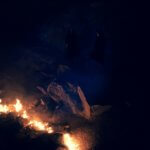 Dødsengel is anything but a conventional or straightforward Black Metal band. You operate by your own rulebook (i.e. none!) and fearlessly create art that is unique and impossible to categorise or pigeonhole. How imperative is it that you continue to ignore all trends, conventions and expectations and focus entirely on doing your own thing in your own inimitable way?
Dødsengel is anything but a conventional or straightforward Black Metal band. You operate by your own rulebook (i.e. none!) and fearlessly create art that is unique and impossible to categorise or pigeonhole. How imperative is it that you continue to ignore all trends, conventions and expectations and focus entirely on doing your own thing in your own inimitable way?
“I must thank you for your kind words. If you write something, then the product of that work will reflect your nature in some way. We are two oddballs who tend to keep to ourselves and small circles of friends. In that sense, we don’t really end up being all that influenced by trends in the black metal milieu. We also tend to fall in love with different projects and areas of study, so we can end up being influenced by a wide variety of music, cinema, academic subjects as well as the perhaps unusual Thelemic outlook on things.
“With this being the case, I don’t think we could make conventional music even if we tried. It’s important to Be Thyself, of course, but being afraid of something can be as controlling as being drawn by it. The man who chases a trend and the man who flees from it are both controlled by the trend. Better to ignore it and chase your enthusiasms without shame.”
How rewarding or cathartic has it been to create this rich bounty of unparalleled music over the past 16 years? Do you feel that you have thus far achieved everything you dreamed of accomplishing under the Dødsengel banner and how much has ‘Bab Al On’ moved you closer to realising or purging these ambitions?
“Dødsengel has been a huge part of my adult life. To always have that creative outlet and treasured friendship is a true privilege. Whatever we achieve under that banner will always be secondary, a pleasant surprise really. I never expected anyone to actually find our work all that interesting. We simply did it because it felt fulfilling and right. I feel humbled and grateful that there are people out there who connected with what we have been doing, and allowed us to play some small part in their lives.”
